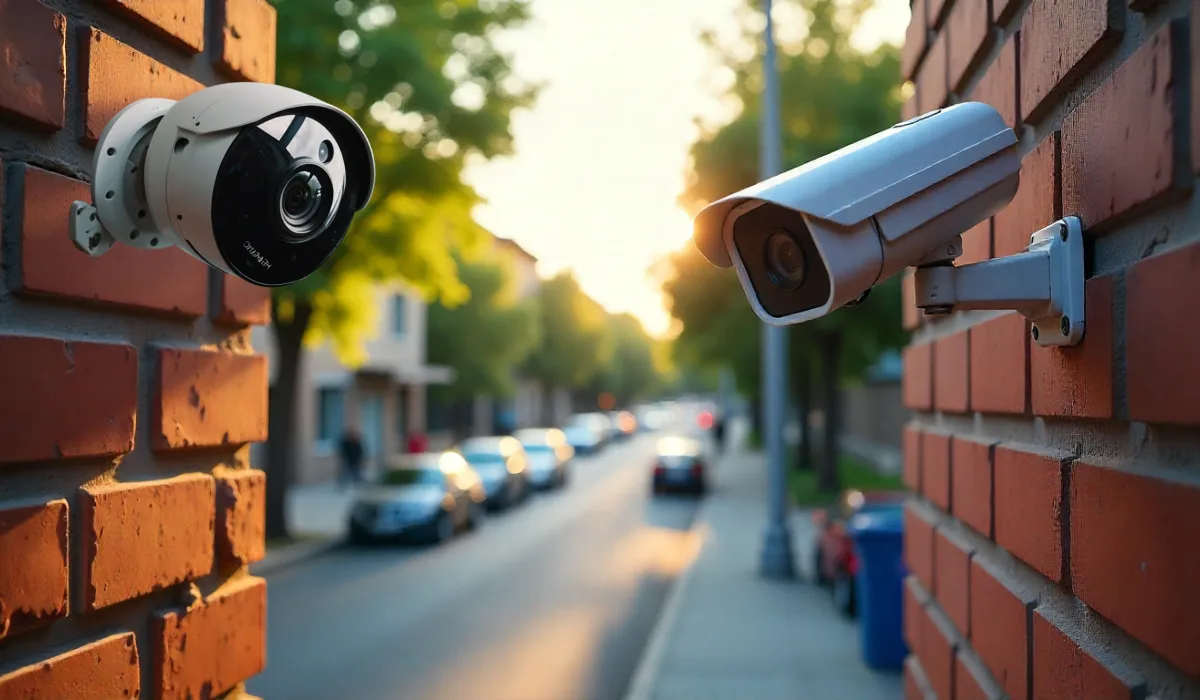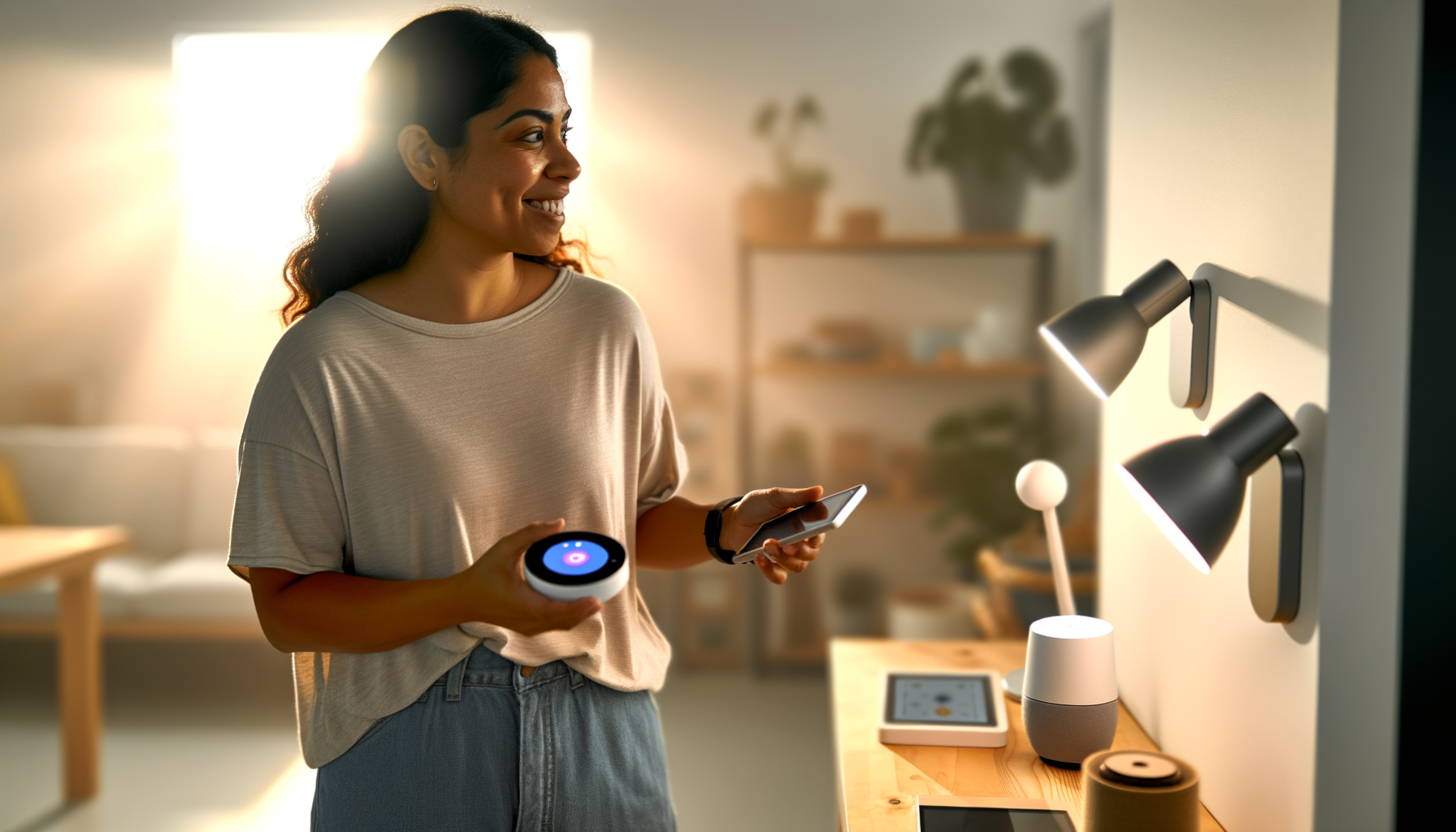So you're trying to pick between an IP camera and an HD camera, right? First off, they’re not the same thing , and it’s not just about one being “better.” It depends on what you're setting it up for. The biggest Difference Between Ip Camera And Hd Camera is how they send and record footage. One works over a network (IP), and the other runs through a coaxial cable (HD). That’s the basic idea, but the details matter. Especially if you’re doing this for your home security and don’t want to waste money or mess it up.
What’s the Real Difference?
Let’s assume you have two cameras in front of you. One says “HD 1080p Camera,” and the other says “IP Camera 4MP.”
- That HD camera is probably analog. It sends video through a wire (coaxial cable) into a DVR. It’s simple. No internet. Just wires and recording.
- The IP camera, on the other hand, sends video over your network. That can be wired (Ethernet) or wireless (Wi-Fi). And you don’t even need a DVR , it can store to the cloud or a memory card.
The IP camera vs HD camera question is really about whether you want digital or analog. IP is digital. HD is analog , just higher resolution than the old fuzzy CCTV cams.
Setup Stuff: Which One’s Easier?
Let’s be honest here. If you don’t want to mess with tech, routers, or settings, go for HD. Why? Because IP cameras usually need network stuff. You might need to log into the camera, give it an address (yep, IP address camera configuration), maybe open some ports if you want to see it from outside your house. Not super hard, but not plug-and-play either.
HD cameras, on the other hand, are simple. Run the cable to the DVR, plug in power, and it’s live. That’s why people still like them , especially if they’ve done CCTV setups before. Any basic CCTV installation guide will walk you through it. This is the real setupDifference between ip camera and hd camera. IP gives you more features, but it’s a little more hands-on.
Read also: Night Vision Camera For Home Security
What About Video Quality?
Here’s where people get tripped up. “HD” sounds like high-quality, right? And it is , but only to a point.
- Most HD cams are 720p or 1080p.
- IP cams start at 1080p and can go to 4MP, 5MP, even 12MP.
So yeah, camera resolution quality is usually better with IP. Especially if you’re trying to zoom in on someone’s face or a license plate. There’s a noticeable difference in video quality of IP camera and HD camera, especially at night or over long distances. But for regular home use , driveway, doorbell, backyard , even a 1080p HD cam is solid.
Let’s Talk Types of Cameras (Real Talk)
There are a bunch of types of security cameras, and it’s easy to get overwhelmed. But really, most fall into four main groups:
- Analog HD – These are your standard wired cams. They’re cheap, reliable, and just work.
- IP cameras – These are digital, smart, and flexible. Most smart home cams fall into this group.
- PTZ cams – Pan-tilt-zoom. Usually IP. You can move them remotely.
- Wireless cams – Most of these are IP-based. Great for renters or temporary setups.
There’s also the whole wired vs wireless cameras debate. While many believe wireless is superior, it is not that simple. Wired is more steady and does not rely on Wi-Fi. Wireless is easier to install but might lag or disconnect. IP can be both wired and wireless. HD is almost always wired.
Pros of IP Cameras (If You’re Up for It)
So what are the IP camera benefits?
- High resolution
- Can view live feed from your phone
- Smart features like motion alerts, face detection, etc.
- Stores to cloud, SD card, or NVR
- Easy to scale , just add more to your network
Also, real-time video streaming is smoother and more accessible with IP cams. You don’t need to be physically near the recorder like with old HD systems.
Why Some People Still Prefer HD Cameras
Not everyone wants apps and cloud storage. Some folks just want to record footage and review it if something happens. That’s what HD camera resolution is good for. The technology is straightforward and it's reasonably priced. Moreover, troubleshooting is a lot simpler. Difference between ip camera and hd camera usually a loose wire is the cause of something not working. You must examine IP, IP settings, perhaps firewall rules with IP. Still a relevant discussion is analog vs digital cameras. Although less sophisticated, analog can be more stable and predictable.
Read also: Best Cameras For Wedding Photography In Maharashtra
Which One’s Better for Home Security?
You’ve probably Googled: Which is better: IP camera or HD camera for home security?
Here’s the honest answer:
- Go with IP if:
- You want to access it remotely
- You want better resolution
- You’re okay with tech stuff
- You’re planning to expand later
- Stick with HD if:
- You want something simple
- You don’t care about phone access
- You’re working with a tight budget
- You already have a DVR system
It’s not about which is “better.” It’s about what fits your situation.
How They Work, Compared Side-by-Side
Last bit: How does an IP camera work compared to an HD camera?
IPcams connect to your home network. They send video to an NVR or cloud or SD card. You can pull up footage on your phone, computer, tablet , wherever. They’re smart, basically. HD cams don’t do any of that. They send video down a wire to a DVR. Difference between ip camera and hd camera that DVR stores everything. If it’s a newer one, maybe it connects to the internet. If not, you need to be at home to see what’s going on.
Read also: How to Make Your Camera Waterproof Easy DIY Tips
Final Thoughts
The difference between IP camera and HD camera isn’t about which is newer or fancier. It’s about what you actually need. Don’t let a tech store upsell you on features you won’t use. Don’t buy a system that’s too basic for your property. Think about how you’ll use the cameras , not just today, but a year from now. Still unsure? Start with one IP cam and test it. Or get a basic HD DVR kit and see how it feels. There’s no one-size-fits-all answer here , just options.
FAQ's: Difference Between Ip Camera And Hd Camera
What is the difference between an IP camera and a normal camera?
The main way that IP cameras and regular (analog) cameras differ is in the way that they send video. With its own IP address and the ability to broadcast video over a network, such as the internet, IP cameras, also known as internet protocol cameras, enable digital processing and remote access. Conversely, analog cameras use coaxial wires to send video information and usually need a separate record device (such as a DVR).
Which is better for home use IP camera or HD camera?
Type of Coverage: Large spaces or intricate settings needing high-resolution video and complex monitoring tools are best suited for IP cameras. HD analog cameras, on the other hand, offer dependable high-definition video quality and are appropriate for smaller spaces or simple surveillance needs.
Can an IP camera work without internet?
Yes, IP cameras can operate without an internet connection, especially if they are linked to a Network Video Recorder (NVR) or have local storage options like SD cards. The basic purpose of recording video footage is not impacted by internet access, even if it is required for remote viewing and alerting.
Does an IP camera need electricity?
To satisfy their power needs, nearly all IP cameras and NVRs have an AC/DC power adapter. An NVR need about 3000ma @ 12VDC to operate, whereas a common IP camera only needs 50 to 300mA of 5 to 12 VDC.













